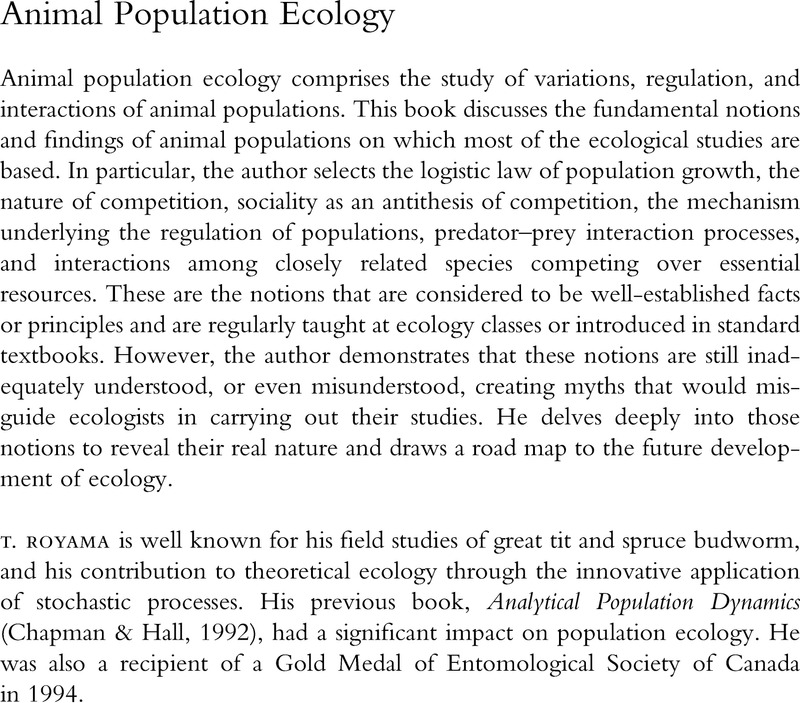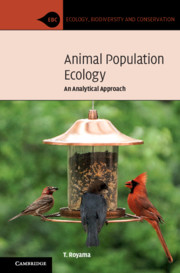Book contents
- Animal Population Ecology
- Ecology, Biodiversity and Conservation
- Animal Population Ecology
- Copyright page
- Dedication
- Contents
- Prologue
- 1 Hunting Strategies of Predators as Revealed in Field Studies of Great Tits
- 2 The Paradox of Crypsis: Is it Effective against Visual Predation?
- 3 Logistic Law of Population Growth: What Is It Really?
- 4 Reproduction Curves and Their Utilities
- 5 Generalization of the Logistic Model
- 6 Scramble and Contest Competition: What Is the Difference?
- 7 Regulation of Populations: Its Myths and Real Nature
- 8 Predator–Prey Interaction Processes
- 9 Interspecific Competition Processes
- 10 Observations, Analyses, and Interpretations: A Personal View through the Spruce Budworm Studies
- References
- Index
Copyright page
Published online by Cambridge University Press: 01 April 2021
- Animal Population Ecology
- Ecology, Biodiversity and Conservation
- Animal Population Ecology
- Copyright page
- Dedication
- Contents
- Prologue
- 1 Hunting Strategies of Predators as Revealed in Field Studies of Great Tits
- 2 The Paradox of Crypsis: Is it Effective against Visual Predation?
- 3 Logistic Law of Population Growth: What Is It Really?
- 4 Reproduction Curves and Their Utilities
- 5 Generalization of the Logistic Model
- 6 Scramble and Contest Competition: What Is the Difference?
- 7 Regulation of Populations: Its Myths and Real Nature
- 8 Predator–Prey Interaction Processes
- 9 Interspecific Competition Processes
- 10 Observations, Analyses, and Interpretations: A Personal View through the Spruce Budworm Studies
- References
- Index
Summary

- Type
- Chapter
- Information
- Animal Population EcologyAn Analytical Approach, pp. viPublisher: Cambridge University PressPrint publication year: 2021

